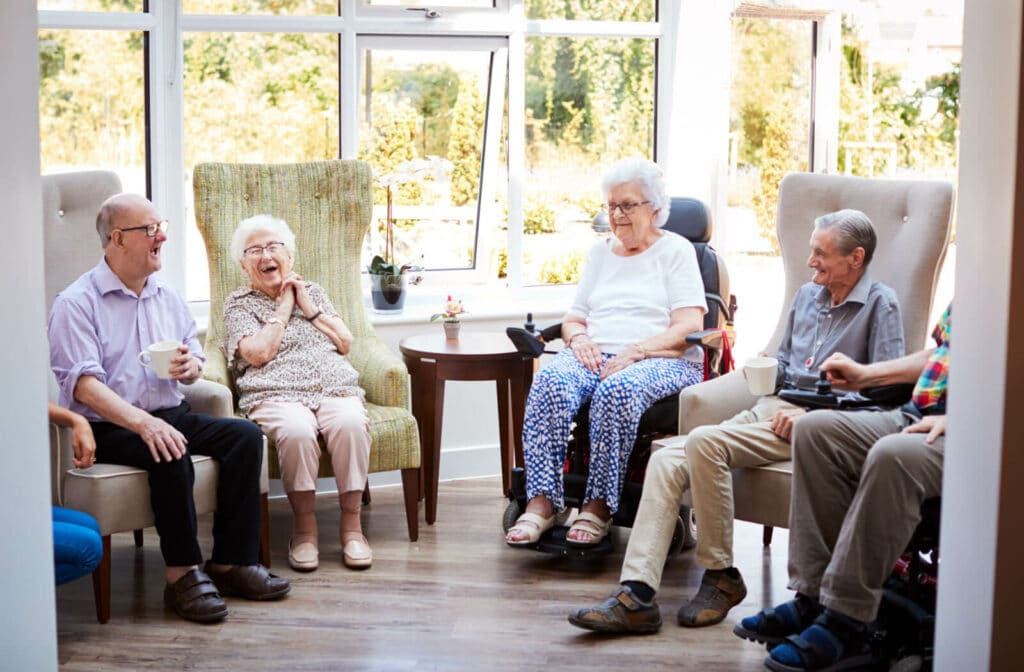As we age, our mental faculties may decline, which can be stressful and uncertain for seniors and their loved ones. Sometimes, assisted living facilities are the best solution for those who need additional care but want to maintain their independence.
However, if your loved one is experiencing memory loss or dementia, it may eventually become necessary to transition them to memory care.
It can be tough to know the right time to move to memory care, but if you notice troubling behavior like mood changes, wandering, or difficulty performing daily routines, it can be a sign that assisted living is no longer enough for them.
Assisted Living vs. Memory Care
Assisted living and memory care facilities are residential facilities that assist with daily tasks and amenities such as housekeeping, cooking, and medication management.
However, memory care facilities are specifically designed to meet the needs of seniors with memory loss and dementia. Memory care facilities provide a higher level of care and have specially trained staff better equipped to handle the unique challenges of caring for seniors with memory loss.
Signs It’s Time to Move to Memory Care
As your loved ones grow older, it’s essential to be aware of their cognitive health and well-being. Many families have their aging parents live with them or in an assisted living facility. However, when a senior is diagnosed with memory impairment, providing the necessary level of care at home or in assisted living can be challenging.
Certain behaviors and signs can indicate the need to transition to memory care.
Wandering
If your parent or loved one is experiencing wandering tendencies, this could indicate a loss of cognitive function. Wandering can become incredibly dangerous, as it could lead to falls or getting lost, especially if they live alone or in an environment that is not tailored to their needs. Memory care facilities have layouts designed with this in mind, allowing residents to wander safely and in a secure environment with diligent staff.
Increased Agitation or Mood Changes
Seniors who have dementia or Alzheimer’s may increasingly experience agitation, which could manifest in a variety of ways, such as yelling, hitting, or throwing things. This could also indicate that the senior lives in an environment that no longer meets their needs and might be better suited in a memory care setting.
These facilities are equipped with staff that know how to handle situations like this in a patient and loving manner that decreases agitation.
It’s common for seniors with dementia and Alzheimer’s to experience signs of depression, anxiety, suspicions, delusions, or hallucinations. If they’re developing these severe symptoms, they should be in a community designed to alleviate stressors that lead to extreme mood changes.
Difficulty Performing Daily Activities
As dementia progresses, seniors may have difficulty remembering to eat or even forgetting that they have eaten. This is also true for hygiene, which could lead to health risks such as infections and skin issues. Memory care facilities offer meals, snacks, and other healthy eating options that cater to older adults’ enhanced nutritional needs.
With onsite medical and knowledgeable staff, memory care can rise to the needs of your loved one and tailor customized care to their developing dementia and changing needs.
Avoiding Social Contact
One of the common symptoms that occur with memory decline is social isolation. Seniors might start withdrawing from family members or avoid attending activities they once enjoyed. This kind of behavior can contribute to depression and further cognitive decline.
Memory care facilities allow residents to engage socially in group activities, outings, and other tailored programming that can keep seniors engaged and motivated while providing the necessary care and attention.

Make a Smooth Transition to Assisted Living or Memory Care
Watching a loved one experience memory loss can be a challenging and emotional experience, but it’s important to remember that help is available. The Legacy at Crystal Falls works with our residents to find the proper lifestyle for them. As their needs and preferences change, we can alter their lifestyle approach to match their level of cognitive function.
Contact us to learn more about the options for your loved one, whether you’re setting them up in assisted living or require more specialized care. Our tailored programs are customized to your loved one’s unique cognitive needs, maintaining the highest level of care and attention.
